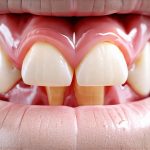Acid reflux is something many people experience occasionally – that burning sensation in your chest after a large meal, or a sour taste at the back of your throat. However, when acid reflux consistently happens at night, disrupting sleep and impacting daily life, it becomes more than just an annoyance; it’s nighttime gastroesophageal reflux disease (GERD). Understanding why this occurs specifically during sleep and what steps can be taken to mitigate its effects is crucial for improved health and well-being. This article will explore the causes of nighttime acid reflux and provide potential solutions to help manage symptoms and improve your quality of sleep.
The discomfort associated with nighttime acid reflux isn’t merely a matter of inconvenience. It can lead to fragmented sleep, reduced productivity during the day due to fatigue, and even long-term complications if left unaddressed. Many people find themselves waking up multiple times throughout the night, battling heartburn or struggling to breathe comfortably, making restful sleep an elusive goal. Identifying the underlying reasons for these nocturnal symptoms is the first step toward finding effective relief.
Understanding Nighttime Reflux
Nighttime acid reflux differs from daytime experiences in several key ways. During the day, gravity helps keep stomach acid down. When you lie down, this natural defense mechanism weakens, making it easier for acid to travel back up into the esophagus. Additionally, saliva production decreases during sleep, reducing its ability to neutralize and wash away acid that reaches the throat.
This combination of factors often results in more severe and prolonged exposure to stomach acid while sleeping, leading to a greater risk of esophageal damage and discomfort. The symptoms can also be harder to distinguish from other nighttime disturbances, making diagnosis more challenging.
Why Does it Happen?
The reasons behind nighttime acid reflux are multifaceted and can vary greatly between individuals. Some common contributing factors include dietary habits, lifestyle choices, and underlying medical conditions. It’s rarely a single cause but rather an interplay of several elements that exacerbate the problem. Identifying your personal triggers is essential for effective management.
Dietary Factors & Lifestyle Choices
Certain foods are known to trigger acid reflux in many people. These commonly include fatty or fried foods, spicy dishes, chocolate, caffeine, alcohol, and carbonated beverages. Eating large meals close to bedtime also increases the risk, as it gives your stomach more time to produce acid while you’re lying down. Lifestyle choices such as smoking and obesity can significantly worsen symptoms. Smoking weakens the lower esophageal sphincter (LES), the muscle that prevents acid from flowing back up, while excess weight puts increased pressure on the abdomen, forcing stomach contents upwards.
Positional Considerations & Sleep Habits
The position in which you sleep plays a significant role. Sleeping flat or on your right side can worsen reflux because it positions the esophagus above the stomach, making it easier for acid to flow back up. Elevating the head of your bed by 6-8 inches using blocks or a wedge pillow can help counter this effect and reduce nighttime symptoms. Other sleep habits, like eating within three hours of bedtime or wearing tight clothing, may also contribute to reflux episodes.
Underlying Medical Conditions & Contributing Factors
In some cases, nighttime acid reflux is linked to underlying medical conditions. Hiatal hernia, where part of the stomach protrudes through the diaphragm, can weaken the LES and increase the likelihood of reflux. Certain medications, such as calcium channel blockers or antihistamines, can also relax the LES. Less commonly, motility disorders affecting the esophagus can contribute to delayed gastric emptying, increasing acid production and leading to nighttime symptoms. It’s important to note that self-diagnosis is not advisable; seeking professional medical evaluation is vital for accurate diagnosis and appropriate management strategies.
Ultimately managing nighttime acid reflux involves a combination of lifestyle adjustments, dietary modifications, and potentially, medical interventions guided by a healthcare professional. Small changes can often make a significant difference in reducing symptoms and improving sleep quality. Focusing on preventative measures – like avoiding trigger foods, modifying sleeping positions, and maintaining a healthy weight – is key to long-term relief. Remember consistency is crucial; implementing these strategies as part of your daily routine will yield the best results.


















